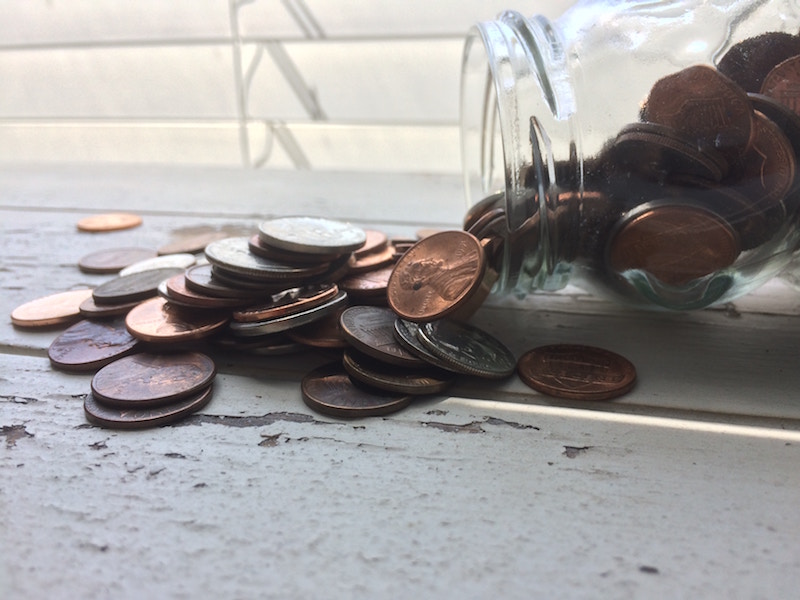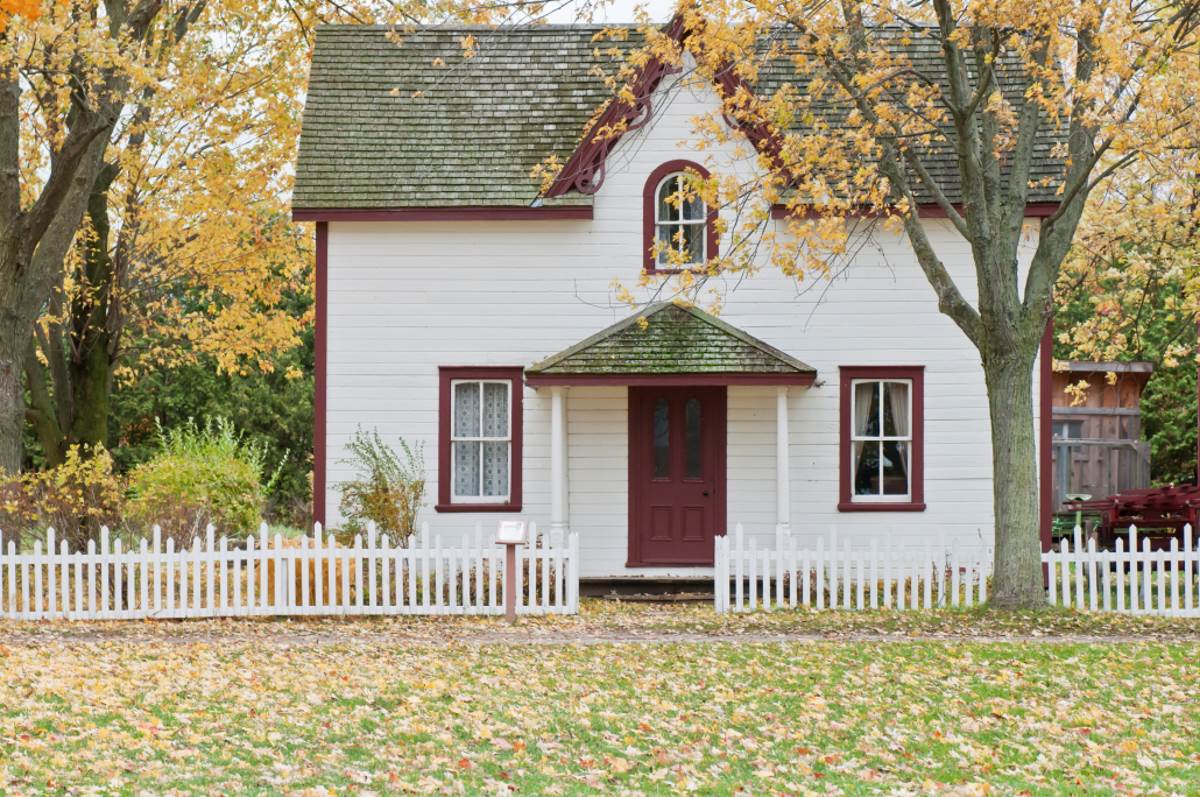Posts
Getting Over the Down Payment Hump
One of the largest barriers to entry into home ownership is saving enough cash for a down payment. Small every day expenses add up; and depending on the market you live in, rent may also be eating a significant portion of your income each month. You do have options; here are some ways you may be able to obtain the funds to put towards a home:
Save – Simple.
Utilizing a Tax Free Savings Account, determine an amount to save each month that you believe is reasonable yet substantial enough to get you to your down payment goal. Additionally, set up automatic transfer into that accounts that line up with payday and bills will soon find yourself getting over the down payment hump.
Extra Income
Ever consider a side hustle or second job. Put 100% of this cash flow into your down payment.
Home Buyers Plan
Have money in your RRSP account? Incidentally, the Federal government will allow you to pull up to $35,000 from your RRSP account. Note, you have 15 years to return the funds back into your RRSP account. The easiest option for getting over the down payment hump.
Sell an Asset
If you have a valuable asset your willing to give up, sell it! Just make sure to establish a clear paper trail; get a receipt or signed bill of sale to legitimize the source of funds.
The Bank of Mom and Dad
This may or may not be possible. Parent may have built up some equity in their home they can access with a secured line of credit. If this is a gift, a signed gift letter stating so will be needed. If it is to be replayed, the payment must be included in your debt ratios used to qualify.
How Mortgage Brokers Get Paid
Firstly, how do mortgage brokers get paid here at Prime Mortgage Works? We do not charge any retainer or upfront fee for our services. Actually, you don’t pay any fee directly to us for our services, ever! Yes, 100% free, no pressures advise! We are licensed professionals and are governed by provincial bodies, who have you, the clients, best interest in mind.
Who Pays the Broker?
The lender pays us, once your purchase or refinance has completed and you have received your mortgage funds. How do we choose which lender? We take into account many features of a mortgage and your specific needs and wants to advise on the BEST option for you. Underlining why it’s important to understand how mortgage brokers get paid. Lenders typically pay anywhere between .8 to 1% of the final approved mortgage amount directly to the lender. This means for you the borrower, there is no out-of-pocket expense due at closing. Rather, lenders pay the mortgage broker directly from the interest they earn from the mortgage you have secured with them.
The Broker’s Incentive
But, rest assured that it is our mission to guide you through the entire financing process. As we are not paid until after closing, this ensures that we have your best interest in mind at all times. We are always happy to answer any questions, anytime, whether you have just completed financing, or are three years into your term and considering accessing some of the equity in your home.
Utilizing the Equity in Your Home
How Utilizing the Equity in Your Home can work to your advantage
Having been in your home for some time, steadily paying off your mortgage, you are setup to be utilizing the equity in your home. To access it, begins with refinancing. This is likely more accessible and at a lower cost than obtaining a loan not secured by your valuable asset – your home. For the most part, home equity loans and lines of credit hold lower interest rates. You will be able to access up to 80% the appraised value of your home.
What can be done with these Funds?
You can then utilize these funds to make investment with higher returns. You may plan to use the funds to make improvements on your home, increasing the resale price potential. Or you may plan to consolidate excising debt charging you a high interest rate, decreasing your debt load faster and increasing your monthly cash flow. Or you may want to pursue a business opportunity that will increase your future earning potential. The opportunities are plenty when you are utilizing the equity in your home.
How to get started?
We will take a simple application from you and gather the necessary documentation from you directly. We will then package the application and present to the lenders that we are working with on a regular basis. Allowing us to handle all aspects of the mortgage refinance, you can ensure you will enjoy a smooth process. From start to finish we will take care of all of the details when utilizing the equity in your home.
Insured and Uninsurable Mortgages?
Mortgage rate pricing is based much on insurance:
Insured and uninsurable mortgages will determine the rate that a lender will offer for your mortgage. This will depend heavily upon the lender’s ability to finance their own operation in the background. It’s important to understand the key aspects when your mortgage broker will discuss uninsurable and insurable mortgage products.
What is an Insured Mortgage?
Insured mortgages are covered by mortgage default insurance through one of three insurers – CMHC, Genworth or Canada Guaranty. A premium is added to the mortgage amount. The amount is a percentage of the loan based on the loan to value ratio with a down payment of less than 20%. These mortgages are most favored by the banks and are reflected by the best rate offers. The maximum amortization allowed for an insured mortgage is presently 25 years.
What is an Insurable Mortgage?
Insurable mortgages do not necessarily require an insurance premium when you are providing a down payment larger than 20%. However, if the insurers rules allow, the lender has the option to obtain insurance themselves. As a result, the borrower rarely knows if and when their mortgage is officially insurable. The maximum amortization will be limited to 25 years, similar as an insured mortgage would be.
Finally, Uninsurable Mortgages
Uninsurable mortgages do not meet the insurers rules; such as refinances and mortgages with amortization longer than 25 years. This is arguably the biggest difference between insured and uninsurable mortgages. As a result, no premium is paid by either the borrower of the lender to obtain default insurance. The risk with this type of mortgage is passed onto the borrower via higher interest rates. Having said that, uninsurable mortgages are often far more flexible in terms of borrowing guidelines. We are happy to discuss the distinct differences in those borrowing guidelines.
Refinance Plus Improvement Mortgage
A refinance plus improvement mortgage can help you finally complete those home renovations you have always wanted to do! A conventional refinance enables a homeowner to borrow up to 80% of the fair market value of their home.
The equity a homeowner can access would be the difference between 80% of market value and the amount outstanding on the current mortgage. This equity can be used for improvement on the home. But what happens once the estimates for the total cost of the project from a contractor is higher. With not quite enough money for the renovation project?
Well, these improvements have the added bonus of potentially increasing the value of the home! A Refinance Plus Improvements Mortgage considers the post renovation (higher) value of the home, this will then allow a homeowner to borrow up to 80% of this increased home value.
It’s easy to get started. Talk to Prime today to find out more about refinance plus improvement mortgages and start making your home renovation dreams come true. With this loan, the upgrades you have wanted while keeping monthly payments manageable can happen. Fast-track your renovations and enjoy the peace of mind that comes with having a great place to call home. It’s never been easier to turn your dreams into reality. It’s the perfect solution for finally achieving all of your home renovation goals!
Don’t Forget About Closing Costs
You saved enough for a down payment, found your perfect home, negotiated the purchase price and made an offer subject to financing, and have now gotten approved! You’re all set, the hard part is done, right? Not in reality, there are quite few other fees that need to be considered – closing costs.
Closing costs are often hidden and often overlooked one time expenses due on the completion date. A rule of thumb is to budget 1.5% to 4% of the purchase price to cover closing costs. However, other factor such as taxes, the type of home, or if it’s a new build can impact the amount you need to account.
Some fees that you are fairly guarantee to face:
- Legal Fees Your lawyer will explain all of the paperwork. They will make sure what you are signing is binding, legitimate, and all items agreed to have been met. In addition, you are liable to repay the lawyer for any searches, registrations, and incidentals due on closing day.
- Title Insurance: Lenders will require title insurance as a condition to their mortgage. This will protect from fraud, identity theft and forgery, municipal work orders, zoning violations and other property defects.
- Fire/Home Insurance: Lenders also require fire/home insurance in place by the time of purchase completion, which covers replacement cost of the home.
- Adjustments: When possession takes place mid month, and the seller has already paid fees such as taxes, utilities, and strata. So, the amount you owe is based on the portion of that month you will have possession and prorated on the date of completion.
- Property Transfer Tax: First time home buyers are exempt if purchasing property under $500,000. All home buyers are exempt if they are purchasing new property under $750,000. Property Transfer Tax is calculated as 1% on the first $200,000, 2% over $200,000 and 3% on any value over $2,000,000.
- GST: Is not charged if someone has previously lived in the home, but charged on all new home purchases.
The list is not extensive, as each purchase has its own set of costs. As your broker, I make sure to explain each one and assure you are fiscally prepared an that you Don’t Forget About Closing Costs
Assessments and Appraisals
The value on an assessment notice may vary quite a bit from a mortgage or real estate appraisal. One reason for this may be the timing that the assessment was done. Versus, the appraisal done reflecting the most recent value based on the current market conditions.
Home Appraisal
The appraisal provides you with a document outlining an estimate of a property’s current fair market value. An appraisal and an assessment are not definitively connected, most lenders will require an up to date appraisal report. Lenders use this valuation to base the size of mortgage they are comfortable lending.
Appraisers are highly regulated and provide unbiased valuations. They take into consideration the property, home, location, conditions and many other external factors. Nearby amenities and access to public transportation. Some lenders will provide a list of approved appraisers they accept.
Often the borrower that is responsible for the cost of the appraisal, which upon completion is sent directly to the lender. The lender will confirm they are making a good investment for the value of the subject property.
Even though the borrower has paid for the appraisal, they are often not able to view the report. The appraiser will perform the report following the parameters defined by the lender. As a result, it is the choice of the lender to allow the borrower to see the report. Incidentally, the reason for this strict access on the lenders part is to avoid the borrower taking the report to multiple lenders in search of the best deal.
Some lenders may offer to refund the cost of appraisal after funding your mortgage.
Preparing for an Appraisal
- Appraisals do include pictures of the exterior and interior of a property, so clean up and consider the curb appeal of your property.
- Make sure to note all upgrades that you have done and the costs associated to assure they are not overlooked.
Look for any small repairs that may affect the value and make repairs before the appraisal is done. It is likely that the appraiser may over estimate the cost, thus having a significant effect on your value. These are the key differences between Assessments and Appraisals.
Bank vs Credit Union Lenders
Bank vs Credit Union Lenders. Both banks and Credit Unions are financial institutions that have similar financial offerings. However, what they can offer in terms of mortgages are quite different. Banks are publicly listed and regulated by the federal government. Credit Unions on the other hand, are locally based organizations regulated by provincial government. When determining which mortgage lender to choose. It is important to consider the pros and cons of each type of institution. Banks, mortgage companies, and credit unions all offer different services and rates which should be considered when deciding on the best mortgage choice. Banks are typically larger institutions that provide a wide range of financial products and services, including mortgages.
Bank vs Credit Union Lenders
Because Credit unions are not regulated the federal Office of the Superintendent of Financial Institutions. Thus, they are often not subject to the mortgage lending rules. Of course, Credit Unions do not come without any downside. As a result of their provincially based operations, they do not offer the ability to port a mortgage to a different province. Credit Unions offer mortgage services for Canadians that may be outside the realm of other mortgage lenders. As such, they are exempt from federal mortgage lending rules and regulations, allowing them to provide more flexible qualification and lending options. This greater flexibility does come at a cost though – credit unions typically charge higher interest rates than traditional mortgage lenders.
It is important to consider your unique situation and needs and weight the pros and cons when comparing lenders. Contact Prime Mortgage Works today.
Self Employed? Get Approved!
Self Employed? Get Approved!
As a self employed individual to get approved, means taking advantage of write-offs that allow your income to be in a lower tax bracket. However, this may also hurt your ability to qualify for a mortgage. Lenders generally require two year of Tax Returns; two years Notice of Assessment along with two years Financial Statements. For those self-employed, Tax Returns show a lower number for income, this will hinder qualifying based on income necessary to service the mortgage.
Our advice:
Think ahead. Two years prior to seeking a mortgage, work to get your personal taxable income to a larger number. A key piece if you are self employed to get approved.
Work with a certified accountant, lender will be more inclined to consider financials prepared and submitted by a professional that will consider you financial goals of getting a mortgage.
If you want a mortgage sooner rather than later and haven’t planned for this when filing your taxes, you can use Stated Income so long as you have been in the same profession for at least two years before becoming self-employed. More documents will be required, including bank statements that prove consistent income.
Lastly, you may have to consider a B lender. B lenders will be more flexible in considering your income. Of course, this does come at a cost of a higher interest rate. Once you have had time to increase your income, you may be able move to the A lender space.
Get started today!
Get a quote now
Ph: 250-708-2063
Fx: 1 866-845-8513
info@primemortgageworks.com










